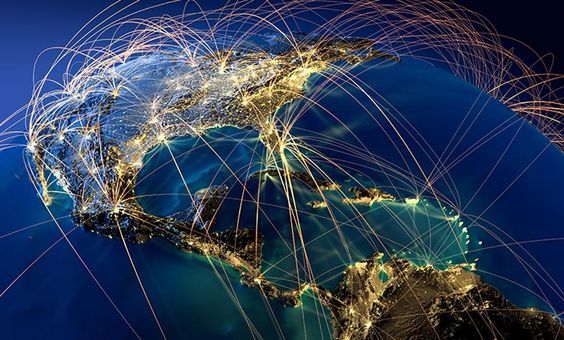What is Global Security
Global security is a paramount concern in today’s interconnected world. From cybersecurity threats to international conflicts, ensuring the safety and stability of nations and their citizens requires a comprehensive approach. In this article, we delve into what global security entails, its key components, challenges, and strategies to address them.
Global Security
Defining Global Security
Global security refers to the measures taken to protect the world from various threats that can jeopardize peace, stability, and prosperity. These threats encompass a wide range of issues, including military conflicts, terrorism, cyberattacks, pandemics, environmental degradation, and economic instability. Also, read about What is domestic assault
Importance of Global Security
Maintaining global security is essential for fostering peaceful coexistence among nations, promoting economic development, and safeguarding human rights. It serves as the foundation for international cooperation and diplomacy, enabling countries to address common challenges collectively.
Key Components of Global Security
Military Security
Military security involves efforts to prevent armed conflicts, deter aggression, and protect national sovereignty. It encompasses defense strategies, military alliances, arms control agreements, and peacekeeping operations conducted by international organizations such as the United Nations.
Cybersecurity
Cybersecurity focuses on safeguarding digital infrastructure, networks, and data from cyber threats such as hacking, malware, and espionage. With the increasing reliance on technology in all aspects of society, protecting cyberspace is critical for preventing disruptions to essential services and maintaining trust in digital systems.
Counterterrorism
Counterterrorism involves measures aimed at combating terrorist organizations and preventing terrorist attacks. This includes intelligence gathering, law enforcement actions, border security enhancements, and international cooperation to disrupt terrorist networks and dismantle their operations.

Nuclear Non-proliferation
Nuclear non-proliferation efforts seek to prevent the spread of nuclear weapons and technologies to non-state actors and rogue nations. This involves diplomatic negotiations, arms control treaties, and nuclear disarmament initiatives to reduce the risk of nuclear proliferation and the use of nuclear weapons.
Environmental Security
Environmental security addresses the threats posed by environmental degradation, climate change, and natural disasters. Protecting the environment is crucial for ensuring the sustainability of ecosystems, mitigating the impact of climate-related disasters, and addressing resource scarcity issues that can lead to conflicts. Discover more about What is the biggest ecosystem on earth
Challenges in Ensuring Global Security
Transnational Threats
Transnational threats, such as terrorism, organized crime, and pandemics, defy traditional borders and require coordinated international responses. Addressing these threats effectively necessitates enhanced cooperation and information sharing among nations.
Emerging Technologies
The rapid advancement of technology presents both opportunities and challenges for global security. Emerging technologies such as artificial intelligence, biotechnology, and autonomous weapons systems can revolutionize warfare and pose new risks if not properly regulated and controlled.
Resource Competition
Competition for scarce resources, including energy, water, and minerals, can exacerbate tensions between nations and regions. Managing resource conflicts and promoting sustainable resource management are essential for preventing conflicts and promoting global stability.
Political Instability
Political instability, corruption, and governance failures in certain regions can fuel conflict, extremism, and humanitarian crises. Addressing root causes of instability, promoting good governance, and supporting democratic institutions are vital for fostering peace and stability worldwide.
Strategies for Enhancing Global Security
Multilateral Diplomacy
Multilateral diplomacy plays a crucial role in addressing global security challenges through dialogue, negotiation, and cooperation among nations. International organizations such as the United Nations, NATO, and the European Union serve as platforms for diplomatic engagement and conflict resolution.
Strengthening Alliances
Building and strengthening alliances among like-minded nations can enhance collective security and deterrence capabilities. Mutual defense agreements, military cooperation initiatives, and joint exercises bolster the capacity of allied nations to respond to security threats effectively.

Investing in Technology
Investing in advanced technologies and innovation is essential for staying ahead of emerging threats and enhancing security capabilities. Research and development in areas such as cybersecurity, surveillance, and defense systems enable countries to adapt to evolving security challenges.
Promoting Sustainable Development
Promoting sustainable development and addressing socio-economic inequalities can contribute to long-term stability and security. Investing in education, healthcare, infrastructure, and poverty reduction programs helps address root causes of conflict and fosters inclusive growth.
Conclusion
In an increasingly interconnected world, global security is indispensable for safeguarding the well-being and prosperity of nations and their citizens. By addressing diverse security challenges through cooperation, innovation, and sustainable development, we can build a safer and more resilient world for future generations.
FAQs
What are the main threats to global security?
The main threats to global security include:
-
- Terrorism: Acts of terrorism pose a significant threat to global peace and stability, causing fear, destruction, and loss of life.
- Nuclear proliferation: The spread of nuclear weapons and technologies increases the risk of nuclear conflicts and escalates tensions between nations.
- Cyberattacks: Cyber threats targeting critical infrastructure, financial systems, and government networks can disrupt essential services and compromise sensitive information.
- Political instability: Political conflicts, civil wars, and governance failures in certain regions contribute to instability and humanitarian crises, destabilizing entire regions and beyond.
- Transnational organized crime: Criminal networks engage in illicit activities such as drug trafficking, human trafficking, and arms smuggling, undermining governance and fueling violence.
How does climate change impact global security?
Climate change impacts global security in various ways:
-
- Environmental degradation: Rising sea levels, extreme weather events, and resource scarcity exacerbate tensions over land, water, and natural resources, leading to conflicts and displacement of populations.
- Food and water insecurity: Changes in climate patterns disrupt agricultural production, exacerbating food shortages and water scarcity, which can trigger social unrest, migration, and conflicts over resources.
- Humanitarian crises: Climate-related disasters, such as hurricanes, droughts, and floods, strain humanitarian resources and infrastructure, leading to displacement, poverty, and social instability.
- Regional instability: Climate-induced migration and resource competition can exacerbate existing conflicts and create new security challenges, particularly in vulnerable regions with weak governance and limited resources.
What role do international organizations play in enhancing global security?
International organizations play a crucial role in enhancing global security by:
-
- Facilitating diplomatic dialogue and conflict resolution efforts.
- Coordinating humanitarian assistance and disaster relief efforts.
- Implementing peacekeeping operations and mediation initiatives.
- Promoting arms control agreements and nuclear non-proliferation efforts.
- Monitoring compliance with international law and human rights standards.
- Providing platforms for cooperation and collective action among member states.
How can individuals contribute to global security efforts?
Individuals can contribute to global security efforts by:
-
- Promoting peace and tolerance in their communities and advocating for non-violent conflict resolution.
- Supporting humanitarian organizations and volunteering for disaster relief efforts.
- Raising awareness about global security challenges, including terrorism, climate change, and human rights violations.
- Participating in civic engagement and advocating for policies that address root causes of insecurity, such as poverty, inequality, and environmental degradation.
- Practicing responsible consumption and environmental stewardship to mitigate the impacts of climate change and promote sustainability.
What are the implications of emerging technologies for global security?
Emerging technologies present both opportunities and challenges for global security:
- Cybersecurity risks: The proliferation of digital technologies increases vulnerabilities to cyber threats, including hacking, malware, and information warfare, requiring enhanced cybersecurity measures and international cooperation.
- Weaponization of technology: Advanced technologies such as artificial intelligence, drones, and autonomous weapons systems have the potential to revolutionize warfare, raising concerns about ethical implications, civilian casualties, and arms control.
- Surveillance and privacy concerns: The widespread adoption of surveillance technologies for law enforcement and national security purposes raises concerns about privacy rights, civil liberties, and government overreach, necessitating safeguards and regulations to protect individual freedoms.
- Disruptive innovations: Emerging technologies disrupt traditional security paradigms and power dynamics, challenging existing norms, alliances, and deterrence strategies, requiring adaptive responses and strategic foresight from policymakers and military leaders.

Hi I’m Julie. Meet the talented fashion designer with three years of industry experience— the creative force behind urbansoutfitter.com. As the author of this stylish haven, they bring a fresh and innovative perspective to the forefront of fashion discussions.

